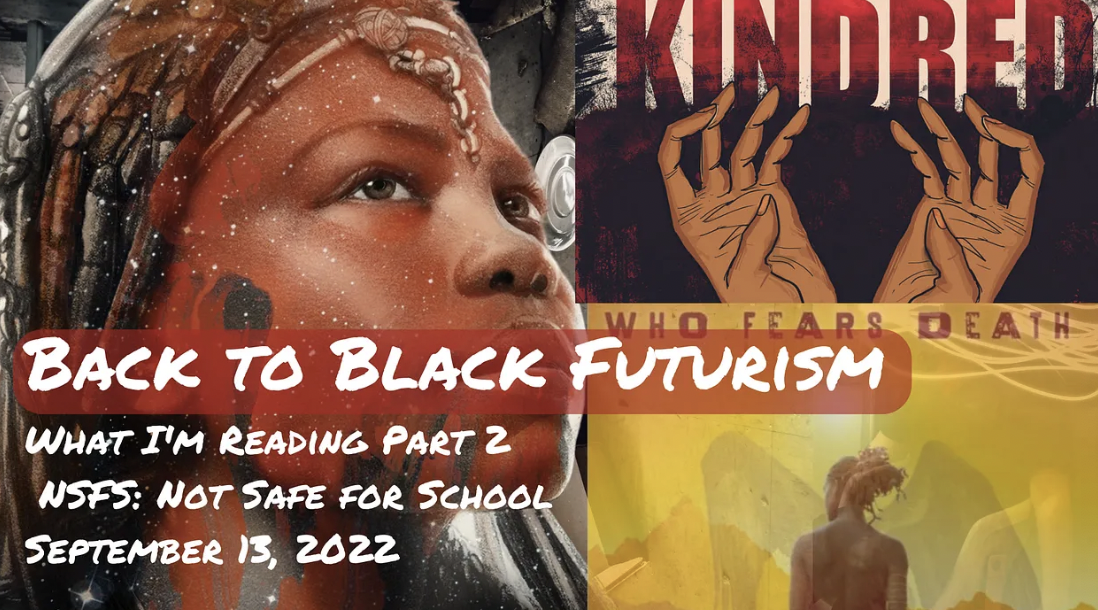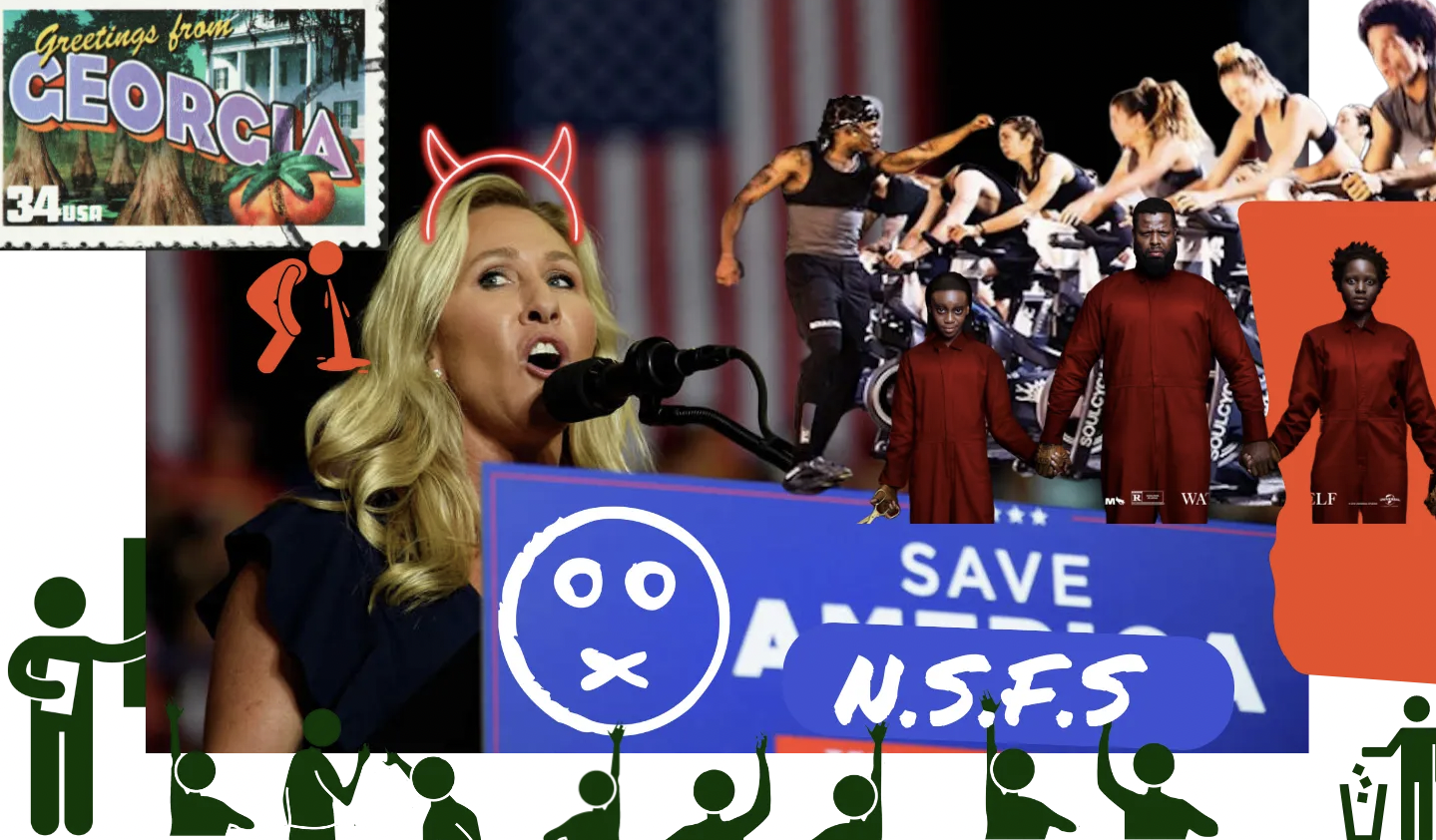Back to Black Futurism
What this imaginative discourse offers us in turbulent times: hope for a different future.
In this post: what imaginative discourse offers us in terbulent times: hope for a different future.
Last week: Part 1 of What I'm Reading about systemic racism, the repetition of history, and how it applies to Afroturfism.
Next week: the NSFS September award for worst GWW goes to... my hometown fascist hero.
Oh hey there folks,
It’s starting to feel like fall here in Chicago, and I have to admit, as terrified as I am for our first Chicago winter, fall is my favorite season. Mostly because the color palate of burnt oranges and hunter greens is what looks best on my pasty-ass complexion.
Speaking of my fellow melanin-deficients, last week, I shared what I’ve been reading about white people and the history of the US education system. Looking through history with a critical eye requires a bravery that, most of the time, I pretty much have to fake to get any writing done. So, to counterbalance all those cold hard facts about just how deep systemic racism has its claws in education, this week’s reading list is dedicated to Afrofuturism..which is all about imagining a better future.
I first discovered Afrofuturism when I was in graduate school; my colleague and co-conspirator, Dr. Tashima Thomas introduced me to the term and much of Black thought around the arts. She’s also starting her first fall in the art history department at SMU. You can check out her list of publications, about everything from remix theory in visual art to food history here.
What is Afrofuturism?
Afrofuturism: a blueprint for cultural growth
“The term represents a cultural aesthetic, philosophy of science, and history that addresses themes and concerns of the African diaspora, predominantly African-Americans, through technoculture and speculative fiction, most notably science fiction, fantasy, alternate history, and magic realism. Many described it as an intersection between imagination, technology, the future, and liberation.” -Jason Collins for Blackgirlnerds.com
This is why I love Black futurism, or Afrofuturism: It allows an honest inspection of the past in order to re-imagine the future. The term was coined by Mark Dery in 1993, where the first Afrofuturists “envisioned a society free from the bondages of oppression-- both physical and social. Afrofuturism imagines a future void of white supremacist thought and the structures that violently oppressed Black communities.”
Afrofuturism evaluates the past and future to create better conditions for the present generation of Black people through the use of technology, art, music, and literature. Here’s a great article about Afrofuturism’s impact on art and design: “Afrofuturism Has Always Looked Forward,” by Taylor Crumpton for Architectural Digest: August 24, 2020
What I’m Reading:
I just finished re-reading Octavia Butler’s Kindred, which I cannot recommend enough if you’re interested in Black speculative fiction and time travel. Butler has an uncanny ability to immerse you into an entirely fictional world with gripping attention by the first 30 pages of her books. Often, she hooks you by the end of the first paragraph. Her books are an absolute pleasure to read as much as they are a way of looking at our present reality through the lens of a different world entirely.
In Kindred, the main character, a Black woman named Dana, is inexplicably pulled thousands of miles from her California home in the 1970s and into antebellum slave south in order to save the life of her white, slave-owning up-to-no-good ancestor. Talk about tense race relations.
Next on my fiction reading list is Nnedi Okorafor Who Fears Death, which has just been optioned by HBO for a series-- here’s a great article on what this means for widespread acceptance of Afrofuturism. I have yet to crack the spine, but I’m sure I’m in for a treat.
Nnedi Okorafor’s Binti Trilogy, and if space travel and aliens are more your thing (they’re not really mine, but I still devoured the relatively short (by sci-fi standards).I love Okorafor’s ability to immerse us in a world of Alien-tentacles as dreadlocks and intergalactic space universities in even less words than Butler.
And the last back to school reading rec for Afrofuturism is about art:
Black Futures Ed. by Kimberly Drew and Jenna Wortham. This image-rich art book is, as the editors describe, “a series of guideposts for current and future generations who may be curious about what our generation has been creating during a time defined by social, cultural, economic, and ecological revolution.”
That’s all she wrote folks, enjoy your homework :P
-Allison






